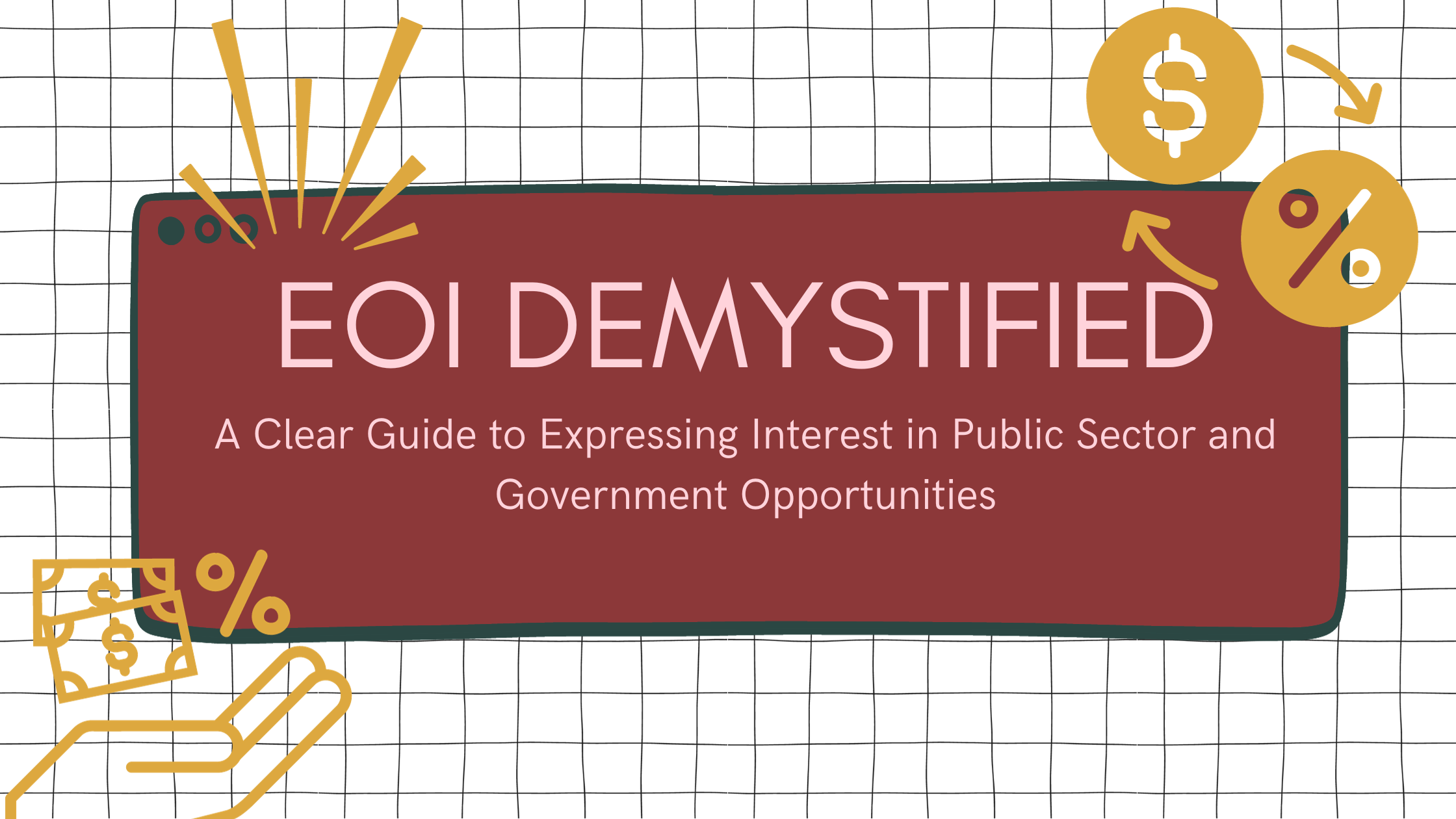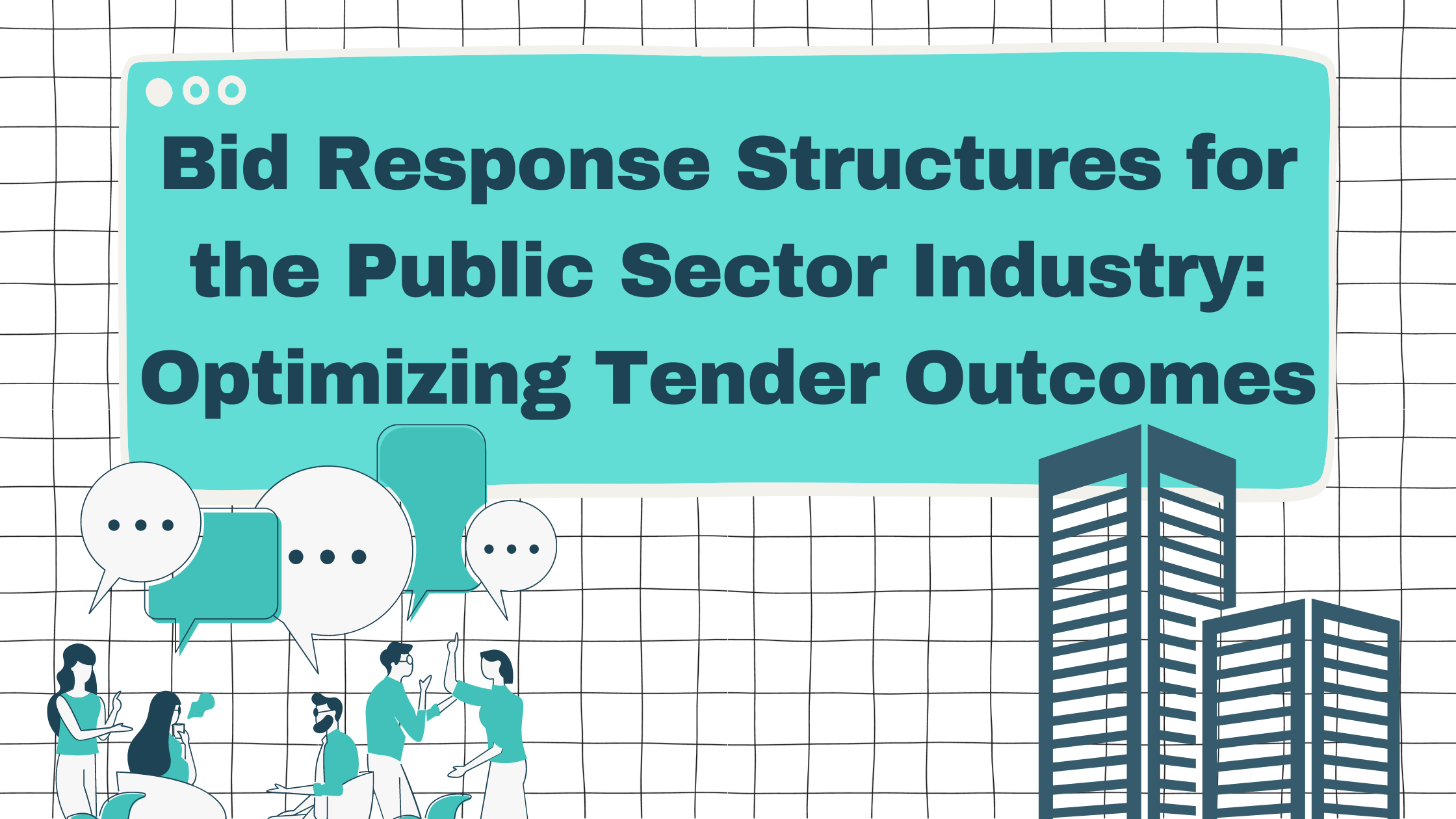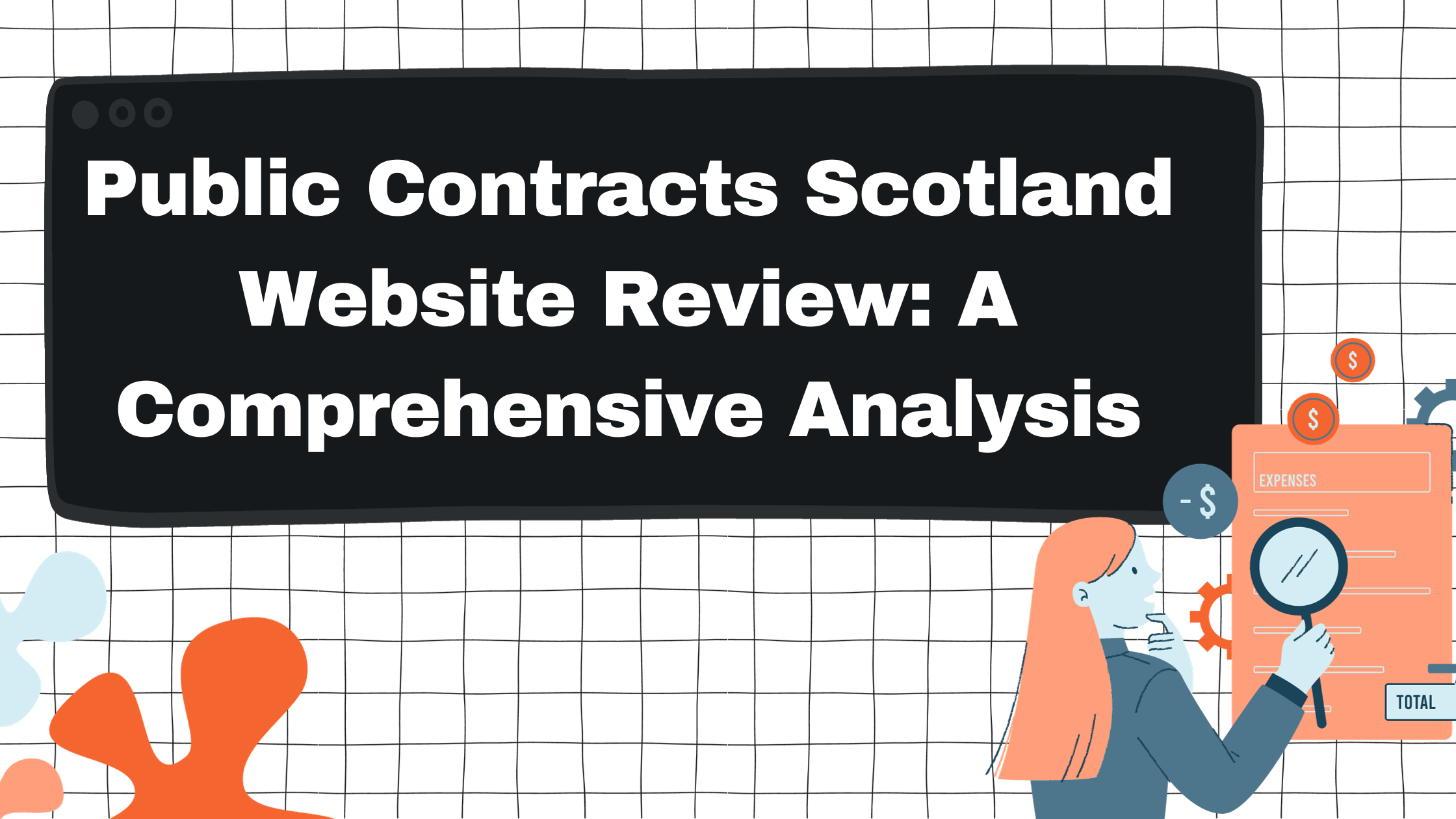Proposal Writing Services and RFP Writing: Mastering Procurement Strategies

Need Help with Your Bid?
Get in touch by filling out the form and one of our advisors will be in contact.
Contact UsBidding on Frameworks vs Contracts: Understanding Procurement Strategies
In the world of procurement, understanding the difference between bidding on frameworks and contracts is crucial for businesses looking to secure work with public or private sector clients. Frameworks are overarching agreements put in place to streamline the procurement process, often with multiple suppliers, governing the terms under which specific contracts, or call-offs, can be awarded over a set period. On the other hand, traditional contracts are singular, standalone agreements struck between a client and a supplier for the delivery of specific goods or services.

Bidding for a place on a framework can offer various benefits including access to a pipeline of potential work without the need to compete for each project, whereas bidding for contracts usually entails a more competitive, in-depth proposal for a singular job. Both routes require thorough understanding and a strategic approach to navigate successfully. Companies must evaluate the advantages, such as potential for increased business, and challenges, like the rigorous selection processes, that come with each option to determine the best course for their business operations and growth.
Key Takeaways
- Framework agreements streamline procurement, offering access to multiple opportunities.
- Individual contracts require detailed bids for specific projects.
- Strategic evaluation of both routes is essential for effective bidding and business growth.
Understanding Frameworks and Contracts
Bidding on frameworks and contracts is a critical aspect of business development, especially when a company aims to secure public sector contracts. Each method of procurement presents unique opportunities and requirements for suppliers.
Definition of Framework Agreements
Framework agreements are mechanisms used primarily within the public sector to streamline procurement. Their purpose is to establish the terms governing contracts to be awarded over a given period, particularly regarding price, quality, and quantity. Framework agreements outline the agreement with multiple suppliers and set out conditions for specific call-offs that occur when actual services or goods are needed.
Overview of Contracts
Contracts, on the other hand, are legally binding agreements between two or more parties, detailing the specific terms for the supply of products or services. Unlike framework agreements, a contract is typically singular and precise, associated with a particular job or project to be completed by a supplier. They define a discrete transaction rather than a long-term relationship, with all terms negotiated and agreed upon for that particular engagement. Contracts encompass all elements of the exchange, from the scope of work to the payment terms, and are enforceable by law.
The Bidding Process
In the realm of procurement, suppliers must navigate through tender processes that can be complex. These differ notably between frameworks, where bidding takes on a multi-stage nature, and individual contracts that often entail a direct approach for a specific project.
Tender Process Essentials
The tender process entails a series of steps that suppliers follow to compete for contracts. It commences with an OJEU (Official Journal of the European Union) contract notice, which signals the start of the procurement. This announcement is crucial, as it lays out the groundwork for the application, detailing opportunity specifics and evaluation criteria used to assess bids.
- Announcement: A public announcement alerts suppliers of new opportunities.
- Expression of Interest: Suppliers indicate their desire to participate.
- Prequalification: Entities meet minimum requirements to bid.
- Invitation to Tender (ITT): Detailed project information and submission requirements are provided to the prequalified suppliers.
Key Stages in Framework Bidding
Framework agreements involve a preliminary stage where suppliers are shortlisted for a period, within which they are eligible to bid for specific contracts.
- Shortlisting: Suppliers undergo an evaluation based on set criteria to determine their eligibility for the framework.
- Call-off Contracts: Shortlisted suppliers receive invitations for mini-competitions for individual contracts under the framework.
By securing a place on a framework, suppliers gain a potential pipeline of projects without needing to compete for each one.
Contract Tendering Overview
Individual contract tendering is a more straightforward pursuit. Suppliers respond to contract notices, often found on platforms like Contracts Finder, showcasing their capacity to fulfill the contract in question. The tendering process for individual contracts typically follows these steps:
- Notice Publication: The contract opportunity is made available.
- Tender Submission: Suppliers submit their proposals by a deadline.
- Evaluation: Bids are evaluated against pre-disclosed criteria.
- Awarding: The contract is awarded to the supplier that best meets the requirements.
Each step requires strict adherence to guidelines, and the utmost attention to detail can be the difference between winning and losing a bid.
Advantages and Challenges

The process of acquiring business through framework agreements and contracts is vital for suppliers seeking to secure both short and long-term revenue. Despite their different structures and purposes, both approaches present unique benefits and challenges.
Benefits of Frameworks
Frameworks offer a streamlined path for suppliers to engage in public sector work. Once a supplier is on a framework, such as those managed by ESPO, they can benefit from reduced competition for individual contracts and enjoy long-term revenue streams. Frameworks, including dynamic purchasing systems, provide a pre-vetted pool of providers, making it easier for the public sector to procure services efficiently.
- Advantages:
- Pre-qualified status: This means less competition per bid.
- Repeated business opportunities: Capable of generating predictable income.
- Time and cost savings: Reduced need for multiple tender processes.
Contract Opportunities
Securing individual contracts outside of frameworks can offer suppliers significant business opportunities through diverse procurement routes. Oftentimes, suppliers might encounter more competitive fields but can leverage their specialized services to win contracts that fit closely with their business offerings. Such contracts are bound by the local procurement act ensuring fairness and transparency in the bidding process.
- Challenges:
- Intense competition: Requires standout proposals.
- One-time revenue: Rather than long-term, unless renewed.
Navigating Complex Procurement
Navigating procurement processes requires a deep understanding of the rules and regulations, such as the Procurement Act, which governs public sector procurement. Suppliers need to be adept at understanding how these agreements work, whether it is a single contract or a framework. The clear and meticulous evaluation of opportunities within these systems is crucial for success.
- Strategies:
- Education: Understanding procurement legislation and frameworks.
- Compliance: Adhering to procurement policies and requirements.
- Research: Staying informed of upcoming frameworks and contract announcements.
Execution and Management
When securing and managing tenders, the focus lies on stable work procurement, adherence to standards, and strategic project oversight. Execution and management of frameworks and contracts are pivotal for a company to ensure revenue continuity, regulatory conformity, and successful project completion.
Securing Long-Term Work
Successful bid writing is fundamental in securing long-term work through frameworks. An approved supplier status allows a company to provide their services whenever they're needed, as seen with single provider framework agreements. These agreements offer a steady stream of work by allowing the client to 'call off' works from the supplier.
Maintaining Compliance
Maintaining compliance within frameworks or contracts entails strict adherence to compliance protocols and quality assurance processes. A project manager is key in safeguarding compliance, often relying on statistical analysis to guide quality control. These statistics are crucial for demonstrating adherence to regulatory requirements and securing future framework agreements.
Project Management Insights
The execution phase is where the project manager plays a crucial role, utilizing both project management insights and rigorous quality assurance processes to keep the project aligned with the client's expectations. Testimonials can often attest to a project manager's ability to deliver results within the complexities of bidding on and managing contracts and frameworks.
Strategies for Success
In the competitive world of framework agreements and contract bidding, suppliers enhance their chances of success by adopting specific strategies that leverage experience, ensure quality, drive innovation, and demonstrate financial stability to improve their competitive position.
Improving Bidding Outcomes
Suppliers are advised to align their bids with the specific requirements of the framework or contract they are pursuing. Detailed knowledge of the procurement process is essential, and they must tailor their responses to showcase their relevant experience and capability. It is beneficial for bidders to highlight:
- Track Record: Evidence of successfully completed projects similar to those outlined in the framework.
- Understanding the Brief: A clear interpretation of the objectives, demonstrating they can meet the client’s goals effectively.
For example, Executive Compass outlines that many are single supplier, suggesting the importance of understanding the tender's specifics to outshine competitors.
Building a Competitive Edge
When constructing a competitive edge, suppliers must emphasize:
- Quality: Implementing rigorous quality control measures and obtaining related certifications.
- Innovation: Demonstrating a commitment to innovative solutions that add tangible value.
- Financial Health: Providing proof of financial stability which assures contract fulfilment without risks.
Innovation, in particular, can set a bidder apart from the competition. Suppliers that invest in research and development may discover unique solutions to common problems, which can be a compelling aspect of a bid. As AM Bid suggests, with so many frameworks available, selecting the right ones and presenting a unique value proposition is key for bidders to succeed. This approach can significantly bolster their chances of being selected for lucrative work packages.
Frequently Asked Questions
When exploring the landscape of procurement, understanding the nuances of framework agreements versus traditional contracts is crucial for businesses and suppliers. This section aims to demystify the core distinctions and procedures relevant to these procurement methods.
What are the key differences between framework agreements and traditional contracts?
Framework agreements are overarching arrangements setting out terms for future contracts, known as call-offs, while traditional contracts are singular, definitive agreements for specific goods or services. Frameworks provide a structure for long-term relationships, whereas traditional contracts are often project-specific.
How does the bidding process differ when applying for framework agreements compared to individual contracts?
Bidding for framework agreements typically requires demonstrating the ability to fulfill a range of services over time, whereas individual contract bids focus on the capacity to deliver a specific, one-off project or service.
Can you provide examples of how framework agreements are used within the NHS procurement process?
In the NHS, framework agreements are used to procure a variety of goods and services efficiently. For instance, they are often utilized for sourcing medical equipment or pharmaceuticals, ensuring that pre-approved suppliers are able to quickly supply these items when needed.
What are the common challenges or disadvantages associated with using framework agreements in procurement?
A common challenge associated with framework agreements is the potential for limited flexibility due to pre-set terms and pricing. Additionally, the initial procurement process can be highly competitive, creating barriers for smaller suppliers.
In what situations would a Dynamic Purchasing System (DPS) be more suitable than a framework agreement?
A Dynamic Purchasing System (DPS) may be more suitable than a framework agreement when the procurement needs are less predictable and require more frequent updating of the supplier base.
How can businesses find available public sector frameworks to bid on?
Businesses can find available public sector frameworks to bid on through official procurement portals such as Tenders Electronic Daily or procurement service websites like the Crown Commercial Service. These platforms list current and upcoming bidding opportunities.
Ready to start your search?
Get in touch by filling out the form to the right and one of our advisors will curate a personalised selection for you.
Get in touchBlogs. Guides. Helpful advice.

Mastering Proposal and RFP Writing for Government and Public Sector Opportunities

Proposal and RFP Writing Services: Enhancing Public Sector Tender Outcomes

.svg)